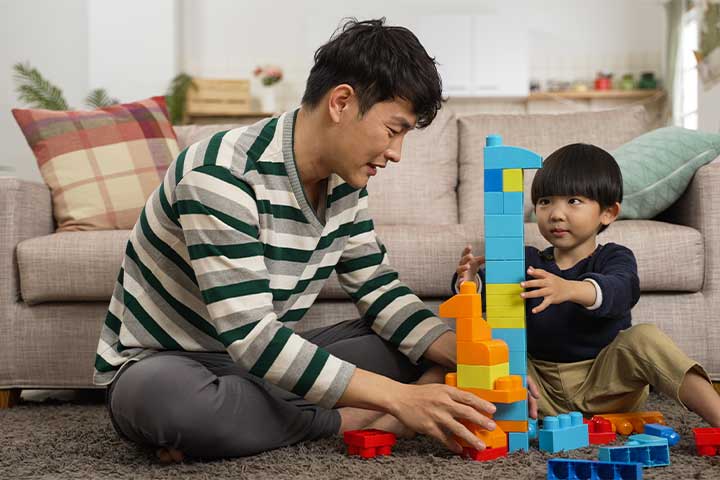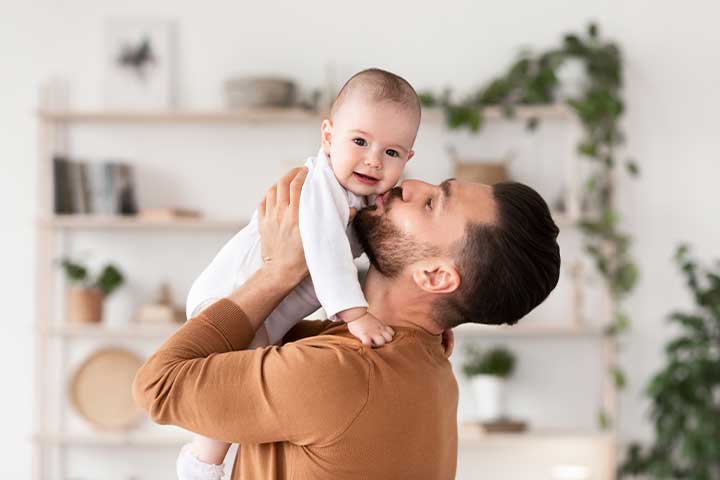
Image: Shutterstock
Parenting is a complex journey, and one of the intriguing aspects is how children sometimes appear to behave differently with one parent. In many cases, children are seen as behaving better with dad. While there are unique individual factors at play, several common threads help explain this phenomenon. In this article, we’ll delve into these factors, providing insight into the dynamics between children and their parents. Read on!
1. The Influence Of More Time Together
Time is a precious commodity in the world of parenting. Fathers, due to work commitments, often have limited time to spend with their children during the workweek. This scarcity of time creates a sense of novelty and excitement when dad is around. Children may cherish this limited time, prompting them to behave better in an effort to make the most of it.
2. Parenting Styles At Play
Image: Shutterstock
Parenting styles vary widely between mothers and fathers. Moms often excel in nurturing and caregiving, while dads may bring playfulness, humor, and a sense of adventure to the parenting dynamic. Children might find dad’s style refreshing and engaging. His willingness to bend the rules or encourage physical play can create a unique bond, influencing children’s behavior positively.
3. The Brain’s Response To Dad
Recent research suggests that children’s interactions with fathers can stimulate specific cognitive skills (1). These interactions can enhance problem-solving abilities, spatial awareness, and language development. Such cognitive skills often result in children appearing to behave better with dad, particularly in situations where these skills are more relevant and encouraged.
4. Attachment Dynamics And Security
Image: Shutterstock
Attachment theory underscores the importance of emotional bonds between caregivers and children. While children can form secure attachments with both parents, they often establish a primary attachment figure, which is typically the parent who provides the majority of caregiving during infancy. When a child feels securely attached to a parent, they tend to exhibit more consistent and cooperative behavior with that parent. This sense of security can lead to children behaving differently with dad, as they feel at ease in their interactions.
5. Variety And Novelty
Children may respond positively to the variety and novelty that dad brings to the table. Dad’s different approaches to problem-solving, discipline, and activities can engage children’s curiosity and creativity. The element of surprise in dad’s parenting style can lead to children behaving differently, often with improved behavior when dad is involved.
6. Diverse Role Modeling
Image: Shutterstock
Children benefit from observing and learning from both parents. Dad’s unique perspective and life experiences provide an additional source of valuable lessons. When children see dad as a positive role model, they may strive to emulate his behavior, leading to better conduct.
7. Stress Reduction
Dads can be stress-busters for children. Sometimes, children may behave better with dad because his presence reduces their stress levels. A playful or reassuring demeanor can help children feel more relaxed and less anxious, resulting in improved behavior.
8. The Power Of Fun And Play
Image: Shutterstock
Dad often brings a sense of adventure and play to parenting. His willingness to engage in physical activities, roughhousing, or imaginative play can captivate children’s interest and boost their overall behavior. The element of fun and playfulness introduced by dad can make children more cooperative.
Image: Shutterstock
9. The ‘good Cop, Bad Cop’ Dynamic
In some families, one parent may often take on the role of the disciplinarian while the other is seen as more lenient or understanding. Children might perceive the less strict parent, often dad, as a source of comfort and ease, leading to better behavior.
10. Timing And Energy Levels
The timing of interactions with each parent can also affect a child’s behavior. If dad tends to spend time with the child during more relaxed hours, like evenings or weekends, when everyone is less stressed, the child may exhibit better behavior due to the positive atmosphere.
11. Activities And Hobbies
Sometimes, children share specific hobbies or interests with one parent more than the other. When engaged in activities they enjoy with dad, children may be more enthusiastic and better behaved, as these moments are associated with fun and bonding.
Equal Importance Of Both Parents
It’s vital to emphasize that while children may appear to behave differently with one parent, the roles of both parents are equally important. Moms and dads contribute uniquely to their child’s development and well-being. Each parent brings their strengths and qualities to the parenting partnership, shaping a well-rounded and balanced upbringing for their children.
In the intricate journey of parenting, children’s behavior can indeed vary between mom and dad. Understanding these dynamics helps parents appreciate the diverse ways in which they contribute to their child’s development and behavior. Both parents play essential roles in nurturing their children, fostering a rich and multifaceted upbringing.

















